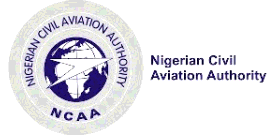 Nigeria’s Push for London Route Dominance Signals Shift in African Aviation Fortunes
Nigeria’s Push for London Route Dominance Signals Shift in African Aviation Fortunes
A fresh chapter is unfolding in Africa’s aviation landscape as Nigeria’s determination to reclaim its most lucrative international route—the Lagos–London corridor—takes centre stage. For years, this air bridge has served as a goldmine for foreign airlines, siphoning billions in ticket revenue away from Nigeria’s economy and, by extension, from the continent’s own aviation growth. Yet, a renewed sense of ambition and urgency is now sweeping through Nigeria’s aviation sector, promising to reshape the balance of power in the skies and drive much-needed economic returns back into African hands.
This transformation was on full display in Lagos, where industry leaders, regulators, and government officials convened for the inaugural SAPTCO Communications Ltd lecture series. The event’s theme, “International Aeropolitics: The Survival of Nigerian Carriers on the London Route,” captured the gravity of the moment. No longer willing to accept a supporting role, Nigeria’s aviation community is mobilising around the idea that dominance in international routes is not just a financial imperative but a matter of national pride and identity.
Representing the Director General of the Nigeria Civil Aviation Authority (NCAA), Barr. Oluwabukola Teriba outlined how Nigerian carriers are beginning to challenge the status quo. Years of inequitable bilateral air agreements and diplomatic imbalances have long favoured foreign operators, but the winds are shifting. The recent success of Air Peace’s entry into the London market stands as a powerful symbol of this new resolve. “We are no longer spectators,” Teriba declared, underlining the NCAA’s commitment to enforcing world-class safety standards and defending Nigeria’s interests on strategic routes.
The discussion made clear that the contest over the Lagos–London corridor is about more than just ticket sales. It is a broader test of Nigeria’s—and by extension, Africa’s—capacity to influence global aviation policy and assert itself as a genuine competitor. In this high-stakes field, strength is measured by regulatory credibility, diplomatic skill, and, crucially, the infrastructure to support robust, reliable operations.
The Federal Government’s position echoed this determination. Minister of Aviation and Aerospace Development, Mr. Festus Keyamo, represented by Mrs. Obiageli Orah of the Federal Airports Authority of Nigeria (FAAN), reaffirmed Abuja’s commitment to empowering Nigerian airlines. Aviation, he stressed, is not only central to economic growth but also to Africa’s wider connectivity and relevance in the global marketplace. The government’s outreach to major aircraft manufacturers and leasing companies—including Boeing—signals an effort to modernise local fleets and put Nigerian carriers on a level footing with international competitors.
Industry veteran Dr. Harold Demuren, former NCAA Director General, provided a sobering reminder of what is at stake. He recalled how, in past years, airlines like Ethiopian Airlines derived a huge portion of their global revenue from Nigerian routes, using Lagos and Abuja as feeder hubs. This scenario, he warned, continues to result in the outward flow of billions that could otherwise stimulate Nigeria’s own aviation ecosystem and create jobs across the value chain. The price disparity between Lagos–London and Accra–London flights further underscores the need for local carriers to command a stronger presence and offer more competitive fares.
Demuren’s critique went beyond government policy. He called on Nigerian airlines to bolster their own reliability, governance, and customer service standards. “Operational failures and stranded passengers erode trust,” he argued, highlighting that access to premium markets and partnerships hinges on consistent, high-quality delivery. To truly take advantage of the Bilateral Air Services Agreement with the UK, Nigerian airlines must not only have the fleet size but also interline partnerships and a reputation for excellence.
To address these challenges, Demuren advocated for targeted policy support: easier access to leasing and foreign exchange, government-backed crisis interventions, and a directive to use Nigerian airlines for government-funded travel. Such measures, he argued, would help local carriers capture a larger share of the market and reduce the dependence on foreign operators that has historically drained revenue from the sector.
The SAPTCO Communications Ltd event itself marked a turning point in aviation policy discourse. Under the stewardship of Managing Director Sam Adurogboye, SAPTCO aims to shift industry communication away from sensationalism towards development-focused dialogue. The lecture series, launched with insights from Demuren and attended by a cross-section of stakeholders, is intended as a platform for rigorous, solution-driven conversations about the future of African aviation.
This gathering’s significance extends beyond Nigeria’s borders. The outcomes and debates have resonance across sub-Saharan Africa, where many countries face similar challenges: foreign carrier dominance, inadequate fleet capacity, and the urgent need for government-industry collaboration. The momentum witnessed in Lagos could inspire other African nations to rethink their own aviation strategies, prioritising intra-African partnerships, policy harmonisation, and the development of competitive homegrown airlines.
The Lagos–London route has become a symbol of what is possible when ambition, assertiveness, and coordinated strategy align. With Nigerian carriers now stepping up and the government signalling support for deeper integration with global aviation partners, a blueprint is emerging for how African nations can reclaim economic value from their most profitable air corridors. For stakeholders across Africa’s tourism and aviation industries, the message is clear: the time for passive observation is over. The next era will be defined by active participation, strategic investment, and the bold pursuit of equity in the skies.
As the sector looks ahead, the call for unity, innovation, and policy alignment is growing louder. If Nigeria succeeds in this new chapter, the ripple effects will be felt in increased connectivity, job creation, and a stronger foundation for Africa’s tourism and business travel sectors. The future of the continent’s aviation hinges on its ability to seize its own opportunities and ensure that the billions flowing through its airspace fuel growth at home, not just abroad.
